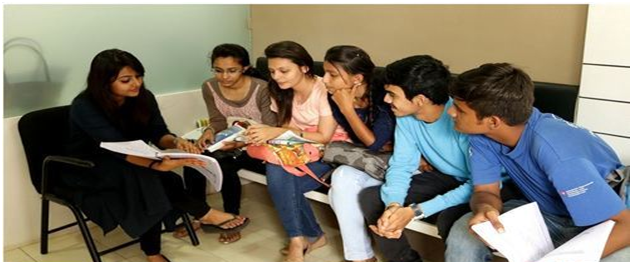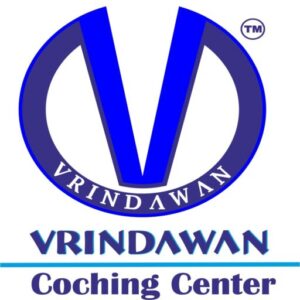Vrindawan Coaching center
IIT JEE Advanced | JEE Mains | NEET (Medical) | MHT-CET | Olympiad | NTSE, KVPY | Scholarship | Academic for all Subjects (5-10) and XI-XII(Phy,Chem,Math,Bio)
Classroom

The students have been provided with spacious well equipped air-conditioned class rooms with comfortable seating arrangements. All class rooms are equipped with Audio-Visual facilities.
A homeroom typically refers to a designated classroom or space in a school where students gather at the beginning of the day, and often throughout the day, for attendance, announcements, and other administrative purposes. It serves as a central point for students before they go to their respective classes. In some educational systems, homeroom teachers may also take on additional responsibilities, such as monitoring the progress of their students, providing guidance, and facilitating communication between students, parents, and other teachers. The structure and purpose of homerooms can vary between different schools and educational systems.
Library

A modern fully computerized state of art library is available for the students. The library has a large collection of reference books, guides and periodicals spanning all fields of the Board syllabus.
It looks like you’re repeating the term “Library.” If you’re referring to a library in a general sense, it could mean different things depending on the context. Here are a few possibilities:
- Public Library: A place where people can borrow books, access various resources, and sometimes use computers.
- Software Library: A collection of pre-written code, routines, and functions that can be used by software developers to save time and effort.
- Digital Library: An online collection of digital resources such as e-books, articles, and multimedia.
- Library in Programming: In programming, a library is a collection of precompiled routines or functions that can be linked and executed by a program.
If you have a specific type of library or context in mind, please provide more details so that I can offer more accurate information.
Career Counseling

One-stop solution for parents and students for information on how to choose a career and reach their career goal.
- Career identification & counseling
- College & Course selection
- Education Abroad, Entrance & Competitive Exams
There are various fields where guiding plays a crucial role. Here are a few possibilities, and you can narrow down based on your interests and skills:
- Tour Guide:
- Provide information and commentary on points of interest for groups or individuals during tours.
- Work in historical sites, museums, cities, or natural attractions.
- Career Counselor:
- Guide individuals in making informed decisions about their career paths.
- Help with resume writing, job search strategies, and interview preparation.
- Life Coach:
- Assist individuals in setting and achieving personal or professional goals.
- Provide support and guidance in areas such as relationships, health, and personal development.
- Mentor:
- Share your knowledge and experience with others in a specific field.
- Provide guidance and advice to help mentees navigate their careers or personal challenges.
- Educational Counselor:
- Assist students in making academic and career-related decisions.
- Provide information about educational programs, scholarships, and career paths.
- Spiritual Guide or Counselor:
- Offer guidance and support to individuals seeking spiritual or religious direction.
- Help people explore and deepen their spiritual beliefs.
- Financial Advisor:
- Provide advice and guidance on financial planning, investments, and budgeting.
- Assist clients in making informed decisions about their financial future.
- Health and Wellness Coach:
- Guide individuals in achieving and maintaining a healthy lifestyle.
- Provide support in areas such as nutrition, fitness, and stress management.
- Therapist or Counselor:
- Offer mental health support and guidance to individuals or groups.
- Specialize in areas such as marriage and family therapy, addiction counseling, or trauma counseling.
- Outdoor Adventure Guide:
- Lead groups in outdoor activities such as hiking, camping, or adventure sports.
- Provide information on safety, local flora and fauna, and the history of the area.
Consider your interests, skills, and the type of guidance you enjoy providing when choosing a profession. You may also need to acquire specific education or certifications depending on the field you choose.
Student Counseling Cell

Aims to help students become self-aware and reach their highest potential while dealing with anxiety and stress. The students are helped to work through their problems, to develop self-awareness and overcome anxiety & stress.
A Student Counseling Cell typically refers to a department or service within a school, college, or university that provides support and guidance to students in various aspects of their academic and personal lives.
The primary purpose of a Student Counseling Cell is to assist students in coping with academic challenges, personal development, mental health concerns, career planning, and other issues they may encounter during their academic journey. The services offered by such a cell may include individual counseling, group counseling, workshops, and resources to help students navigate their academic and personal well-being.
Counselors in these cells are trained professionals who can provide guidance on a wide range of issues, such as stress management, time management, study skills, career choices, and emotional well-being. The goal is to create a supportive environment that helps students thrive academically and personally.
It’s worth noting that the specific name and structure of such services can vary between institutions, and the terminology used may differ. If you have a specific context or question related to student counseling cells, feel free to provide more details for a more targeted response.
Doubt Clearing Session
Students can meet their teachers after the regular lectures and discuss their doubts in case they have any. This facility will be available throughout the year, except Sunday.
A “Question Clearing Meeting” typically refers to a meeting where participants gather to address and resolve any questions or concerns that have arisen. The purpose is to ensure that everyone has a clear understanding of certain issues, tasks, or projects. Here’s a general outline of what might happen in a Question Clearing Meeting:
- Agenda Setting:
- Define the purpose of the meeting.
- Identify the specific questions or concerns that need clarification.
- Set a time limit for the meeting to ensure efficiency.
- Participant Introductions:
- If the meeting involves different teams or departments, participants may introduce themselves briefly.
- Question and Concern Presentation:
- Participants present their questions or concerns.
- Each item is discussed, and relevant details are provided.
- Clarification and Discussion:
- Facilitate discussions to address each question or concern.
- Encourage open communication and collaboration.
- Resolution and Action Items:
- Determine resolutions for each question or concern.
- Assign action items to specific individuals or teams responsible for implementing the resolutions.
- Documentation:
- Record the resolutions and action items for future reference.
- Share meeting notes with participants.
- Follow-up:
- Schedule follow-up meetings if necessary.
- Track the progress of action items.
- Closing:
- Summarize key points.
- Thank participants for their contributions.
The meeting can be conducted in person or virtually, depending on the participants’ locations and the nature of the questions or concerns. The goal is to ensure that everyone leaves the meeting with a clear understanding of the discussed topics and a plan for moving forward.

